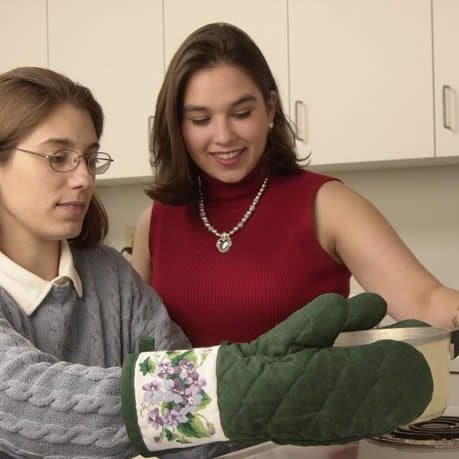OTA Fieldwork for Students: Level 2
All students must review the Introduction to Fieldwork presentation prior to the first day of fieldwork. This presentation will provide an overview of the purpose of fieldwork, placement process, a review of the required modules and documents for the fieldwork folder, and several student resources to support a successful experience.
The following are general Level 2 student learning objectives developed by ACC’s OTA program (aligned with the AOTA Fieldwork Evaluation for the Occupational Therapy Assistant Student).
Screening and Evaluation
The student will:
- gather relevant information from the medical records and patient/family interviews as directed.
- observe client performance during site specific screenings or evaluations and
- in collaboration with the fieldwork educator, identify and prioritize client strengths and weaknesses which may impact occupational performance.
- if direct observation is not available, the student can meet the objective by reviewing a completed evaluation
- state and prioritize problem areas and skills (using the OT Practice Framework as a guide) based on evaluation results in preparation for short term goal development, in collaboration with the fieldwork educator.
- under the supervision of the fieldwork educator, assist with portions of assessments and demonstrate performance on screening tools appropriate for the facility.
- write short term goals directed at prioritized problems, in collaboration with the fieldwork educator.
Intervention and Implementation
The student will:
- carry a caseload of three to five patients, under supervision of the fieldwork educator.
- select interventions that address the identified goals, in collaboration with the fieldwork educator.
- engage the client in treatment activities with the direct supervision of the fieldwork educator (as the student becomes more proficient, supervision should gradually decrease to line of sight supervision).
- demonstrate clinical reasoning skills in both verbal and written form with regard to assigned clients on caseload.
- incorporate the psychosocial aspect of intervention in all clients whether in developmental, mental health, home care or short/long term physical rehabilitation facilities.
- identify and implement activity adaptations or environmental modifications, in collaboration with the fieldwork educator, that reflect the changing needs of the client.
- develop or update short term goals, in collaboration with the fieldwork educator, based on observed client performance using the OT Practice Framework.
During treatment implementation, the student can be expected to demonstrate with proficiency, under the supervision of the fieldwork educator the following skills: standard precautions, proper greeting and introduction of activity to client, implementation of patient safety techniques, accurate goniometry measurements, accurate manual muscle testing, safe lifts and transfers, a variety of inhibitory/facilitory techniques such as brushing, vibration, use of vestibular equipment, effective positioning, variety of feeding techniques, demonstrate splinting principles and techniques (if required), application of knowledge of adaptive equipment, facilitation of group process techniques, instruct in ADLs, instruct in a variety of craft activities.
Communication and Documentation
The student will:
- utilize OT terminology that is consistent with OT Practice and the Occupational Therapy Practice Framework in both written and oral forms of communication.
- consistently identify him/herself as an OTA Student from Austin Community College.
- verbalize the role of occupational therapy (specific to the area of practice) and compare and contrast the responsibilities of an OTR with an OTA in the setting.
- write facility specific documentation on every patient seen.
Professional Literature
The student will present a case study or in-service based on a topic chosen in collaboration with the fieldwork educator (the presentation should include research of professional literature).
Based on his/her discretion, the fieldwork supervisor may also request that the student prepare additional assignments as needed to enhance his/her learning. This may include, but is not limited to, additional readings or a facility specific project.
Values, Ethics, and Responsibilities
The student will:
- demonstrate active participation in the learning process.
- demonstrate adherence to HIPAA regulations by maintaining client confidentiality.
- demonstrate adherence to safety regulations, using sound judgment in regards to personal, environmental, and patient safety.
- demonstrate adherence to the OT Standards of Practice, Occupational Therapy Code of Ethics, and OT Practice Framework while engaging in fieldwork activities.
- demonstrate professional behaviors that are consistent with site (and academic institution) expectations
- demonstrate appropriate interactions with clients, families, the fieldwork educator, and members of the interdisciplinary team.
- demonstrate an active role in the supervisory process by giving, receiving, and responding to feedback in a professional manner.
- Level 2 Evaluation – The Level 2 evaluation, Performance Evaluation for the Occupational Therapy Assistant Student, is individually purchased through AOTA and will be provided to you by the AFWC.
- Personal Data Sheet for Student Fieldwork Experience Level 2
- Fieldwork Time Record – Must be completed daily. Each entry must be dated and written in black ink. A supervising FWE must initial the timesheet on a weekly basis. Times must be recorded in an hour and minute format. Do not use decimals or fractions in your recording.
- Level 2 Fieldwork Site Evaluation – This form should be completed and reviewed with the primary FWE at the end of the experience. The original evaluation should be returned to the AFWC; a copy should be provided to the FWE.
Search the Health Sciences Website
Occupational Therapy Assistant Updates
2024 Health Sciences Spring Completion Ceremonies
We are delighted to extend a warm invitation to you for our Austin Community College's 2024 Health Sciences Spring Completion Ceremonies, where we will celebrate the achievements of our graduating students.
Read moreACC Health Sciences Regional Simulation Center
As the area’s number one educator of healthcare professionals, ACC’s Health Sciences Area of Study equips students for the important work that lies ahead. Our program is amongst the best in the state, and our graduates outperform students from across the nation.
Read moreACC and AFD Celebrate Five Years of Red Angels Partnership
A new plaque proudly hangs on the walls of ACC’s Health Sciences building at Eastview Campus — celebrating five years of making a difference in the community.
Read more

